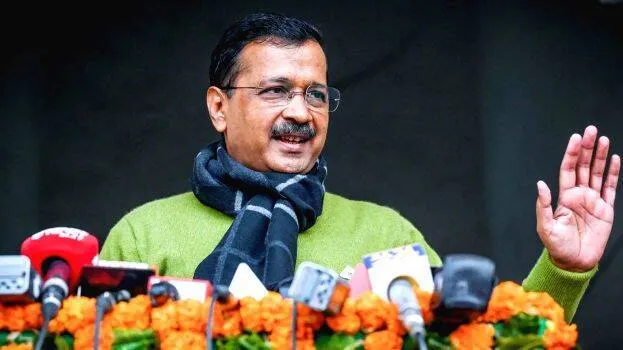

The Supreme Court granted interim bail to Aam Aadmi Party leader and Delhi Chief Minister Arvind Kejriwal at a time when the nation is halfway through the democratic process of electing the central government for the next five years. One of the main conditions laid down by the court for bail is that Kejriwal should not enter the Chief Minister's office or the Delhi Secretariat. From this, it is clear that the court took into account the serious nature of the case against Kejriwal. It can be assumed that the special situation that the country is going through prompted the court to grant interim bail. By granting bail to Kejriwal, the apex court, in a sense, showed respect for the world's largest democratic process.
Just because Kejriwal was granted bail by the apex court doesn't mean that he has been acquitted of the charges filed by the ED. The trial can proceed despite interim bail. Kejriwal, who was arrested on March 21 in the excise policy case, has been granted bail for 22 days. The interim bail has given him the time and freedom to actively engage in election campaigning and strongly criticize his opponents. Polling will be held in Delhi on May 25 and in Aam Aadmi-ruled Punjab on June 1st. The apex court must have taken this decision on the basis of its understanding that the fact that Kejriwal can campaign for the INDIA alliance in various states is a measure that will strengthen the democratic process beyond the merits of the case.
The Supreme Court has the power to make decisions by going beyond the precise boundaries of the law. However, lower courts cannot interpret the law that way. Kejriwal has been charged under the Prevention of Money Laundering Act in connection with the Delhi liquor policy case. Getting bail in the PMLA Act is almost impossible except in the Supreme Court. Bail can be granted only if the judge is prima facie satisfied that the accused has not committed the offence. Therefore, no judge normally dares to make such a decision. Hence, Kejriwal did not approach the Supreme Court seeking bail. He approached the court seeking the quashing of his arrest by pointing out that the action of arresting him and the charges levelled against him by the ED were wrong.
However, the court did not go into the merits of the case or make any observations regarding it. The ED had explained in the court that Kejriwal's arrest just before the elections was a continuation of the Delhi CM ignoring 9 summonses issued to him in the case. The ED also argued that politicians are no different from ordinary citizens. However, the Supreme Court did not accept it. The court considered that Kejriwal is a leader of a major political party, is the Chief Minister of Delhi and has no criminal background. It can also be assumed that by granting interim bail to Kejriwal, the court gave out a message that campaigning in the elections is unavoidable for the people's representatives and that it is necessary for the consciousness of free elections. In any case, the decision of the Supreme Court will further strengthen democracy.